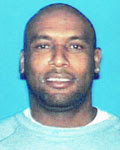Jeremi “J-Shasta” Chaplin, 22, earned a reputation of robbing drug dealers and shooting up parties and clubs
Leaders Jeremi “J-Shasta” Chaplin, 22, earned a reputation of robbing drug dealers and shooting up parties and clubs beginning when he was 17. Other leaders were identified as Antonio “Tiger” Williams, 20; Reginald “Young Smoke” Lewis II, 23; Courtney “Chicago” Frierson, 19; Sharodd “Ville” Mitchell, 20; and Darien “D” Flowers, 19; and Vincent “Poppa” Byrd, 23. Seven men arrested in the past two years were the leaders of a violent street gang that wreaked havoc in Duval, Clay, Volusia and Leon counties.The men, all tied to Westside neighborhoods off 103rd Street, have been charged in the past few weeks under a state law that allows gang members to be prosecuted as members of a criminal enterprise. They are accused under the Racketeering Influenced Corrupt Organizations statute of committing crimes, ranging from robbery to car theft, for the gang or benefit of the gang.
Police and prosecutors said with 204 felonies and 221 misdemeanors under their belts, business was good. And information released Tuesday about the men and their gang give one of the most detailed accountings of such violence ever made public in Jacksonville.
The men face a maximum of 60 years in prison in the RICO case. They are being held on $1 million bail.Rutherford said another 17 gangs with 221 members are operating in the city. He called RICO a “big hammer” that he intends to use to eliminate those groups.The 18-month probe was labeled Operation 103rd St. CHB. It was named after a part of the gang known as the 103rd Street Certified Head Bustas. Offshoots include the 103rd Street Savages or the 103rd Street Trap Boyz, arrest reports said.The gang began operating in 2004, made up primarily of people who grew up on the Westside around 103rd Street and Interstate 295, police said. Many attended Nathan B. Forrest High School, where the gang was started.Members began earning credibility by stealing cars from car lots and rental car agencies, petty hustling and selling drugs. Those who stole nicer cars than others were given more credibility. Those with the most money earned respect from gang leaders, who often split the proceeds of crimes, the arrest reports said.Members who robbed people on the street for gold jewelry wore it to build credibility. Younger members who wanted to earn respect volunteered to commit drive-by shootings. No shooting victims were included in arrest reports and Rutherford did not refer to any murders connected to the gang.
Members had shirts made with CHB logos and made CDs under a CHB label. Lyrics glorified drug dealing, robbery and shootings. Several gang members were named in the songs.About 36 people were directly part of the gang, while another 40 were from affiliates, some known as Buck Block and Sherwood, arrest reports said. Gang members range in age from 18 to 24. They had a common hand sign and tattoos, including “103rd Street,” “CHB,” “Get Money,” “Hot Boy” or “MOB.” They also often wore camouflage clothing.Members bragged and blogged about their viciousness on social networking Web sites such as MySpace.com. Their feuds included run-ins with other gangs from neighborhoods in Lackawanna, Sweetwater and the Eastside. Those incidents included shootings, fights at nightclubs and subsequent retaliation.On Tuesday, police displayed one of the gang’s T-shirts with a picture of smiling members flashing gang signs. The lettering around the picture read: “If It’s Gangsta Then We All In.”
Police and prosecutors said with 204 felonies and 221 misdemeanors under their belts, business was good. And information released Tuesday about the men and their gang give one of the most detailed accountings of such violence ever made public in Jacksonville.
The men face a maximum of 60 years in prison in the RICO case. They are being held on $1 million bail.Rutherford said another 17 gangs with 221 members are operating in the city. He called RICO a “big hammer” that he intends to use to eliminate those groups.The 18-month probe was labeled Operation 103rd St. CHB. It was named after a part of the gang known as the 103rd Street Certified Head Bustas. Offshoots include the 103rd Street Savages or the 103rd Street Trap Boyz, arrest reports said.The gang began operating in 2004, made up primarily of people who grew up on the Westside around 103rd Street and Interstate 295, police said. Many attended Nathan B. Forrest High School, where the gang was started.Members began earning credibility by stealing cars from car lots and rental car agencies, petty hustling and selling drugs. Those who stole nicer cars than others were given more credibility. Those with the most money earned respect from gang leaders, who often split the proceeds of crimes, the arrest reports said.Members who robbed people on the street for gold jewelry wore it to build credibility. Younger members who wanted to earn respect volunteered to commit drive-by shootings. No shooting victims were included in arrest reports and Rutherford did not refer to any murders connected to the gang.
Members had shirts made with CHB logos and made CDs under a CHB label. Lyrics glorified drug dealing, robbery and shootings. Several gang members were named in the songs.About 36 people were directly part of the gang, while another 40 were from affiliates, some known as Buck Block and Sherwood, arrest reports said. Gang members range in age from 18 to 24. They had a common hand sign and tattoos, including “103rd Street,” “CHB,” “Get Money,” “Hot Boy” or “MOB.” They also often wore camouflage clothing.Members bragged and blogged about their viciousness on social networking Web sites such as MySpace.com. Their feuds included run-ins with other gangs from neighborhoods in Lackawanna, Sweetwater and the Eastside. Those incidents included shootings, fights at nightclubs and subsequent retaliation.On Tuesday, police displayed one of the gang’s T-shirts with a picture of smiling members flashing gang signs. The lettering around the picture read: “If It’s Gangsta Then We All In.”

Comments
Post a Comment